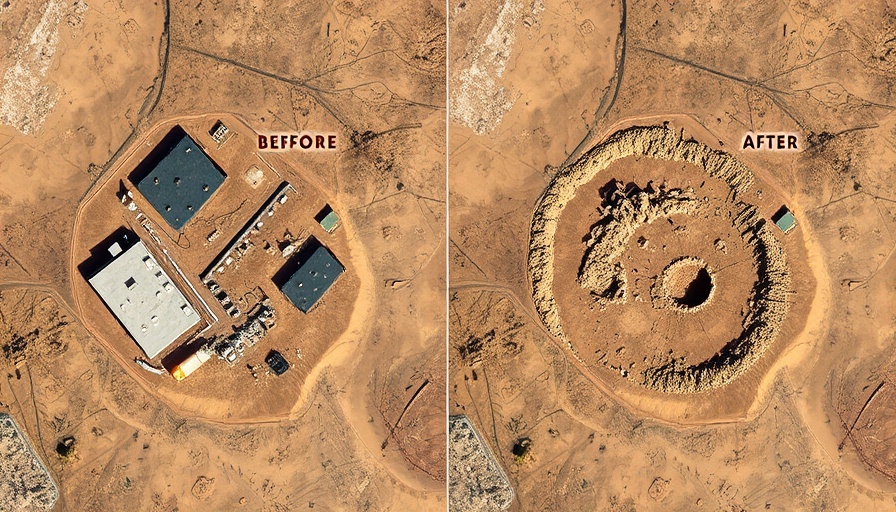
Iran's Nuclear Program: What the New Report Reveals
A recent U.S. intelligence report raises critical questions about the effectiveness of military strikes on Iran's nuclear capabilities. According to the Defense Intelligence Agency (DIA), the recent U.S. strikes have only paused Iran's nuclear ambitions by a few months rather than delivering a decisive blow. This assessment diverges sharply from earlier claims by both former President Donald Trump and Israeli Prime Minister Benjamin Netanyahu, who insisted the strikes resulted in substantial destruction of Iran’s nuclear facilities.
The Importance of Context
Understanding Iran's strategic maneuvers before the airstrikes is key. Reports indicate that Iran had preemptively relocated critical components of its nuclear program, including highly enriched uranium and centrifuges, out of harm's reach. This foresight sheds light on how Iran navigates the threats posed by military action. For business professionals, the implications of this resilience are crucial — they reveal the complexities of geopolitical risk when assessing investments or partnerships in the tech and energy sectors.
Reactions from the U.S. Administration
The White House has dismissed the DIA's findings as erroneous, arguing that the strikes were meticulously executed to achieve total obliteration. White House spokesperson Karoline Leavitt defended the legitimacy of the operation, insisting the public perception of success should not be undermined by conflicting intelligence reports. Such diverging narratives highlight the broader theme of how information can shape market sentiments and confidence in business dealings related to defense and technology.
The Bigger Picture: Future Risks and Opportunities
As the U.S. aims to revive negotiations with Iran, experts warn that uncertainty over Iran's retained nuclear capabilities could lead to more aggressive pursuit of a nuclear weapon. This situation not only affects diplomatic negotiations but also poses risks to businesses operating within affected regions or industries reliant on stability, such as tech startups and real estate in volatile markets.
Conclusion: Stay Informed
For business professionals navigating the complexities of international relations and market volatility, keeping abreast of developments in global and local environments is essential. Strategies for responding to geopolitical shifts could influence decision-making and investment in the burgeoning sectors of sustainability and technology. By prioritizing awareness of these dynamics, professionals can better position their organizations for success amid uncertainty.
 Add Row
Add Row  Add
Add 



Write A Comment